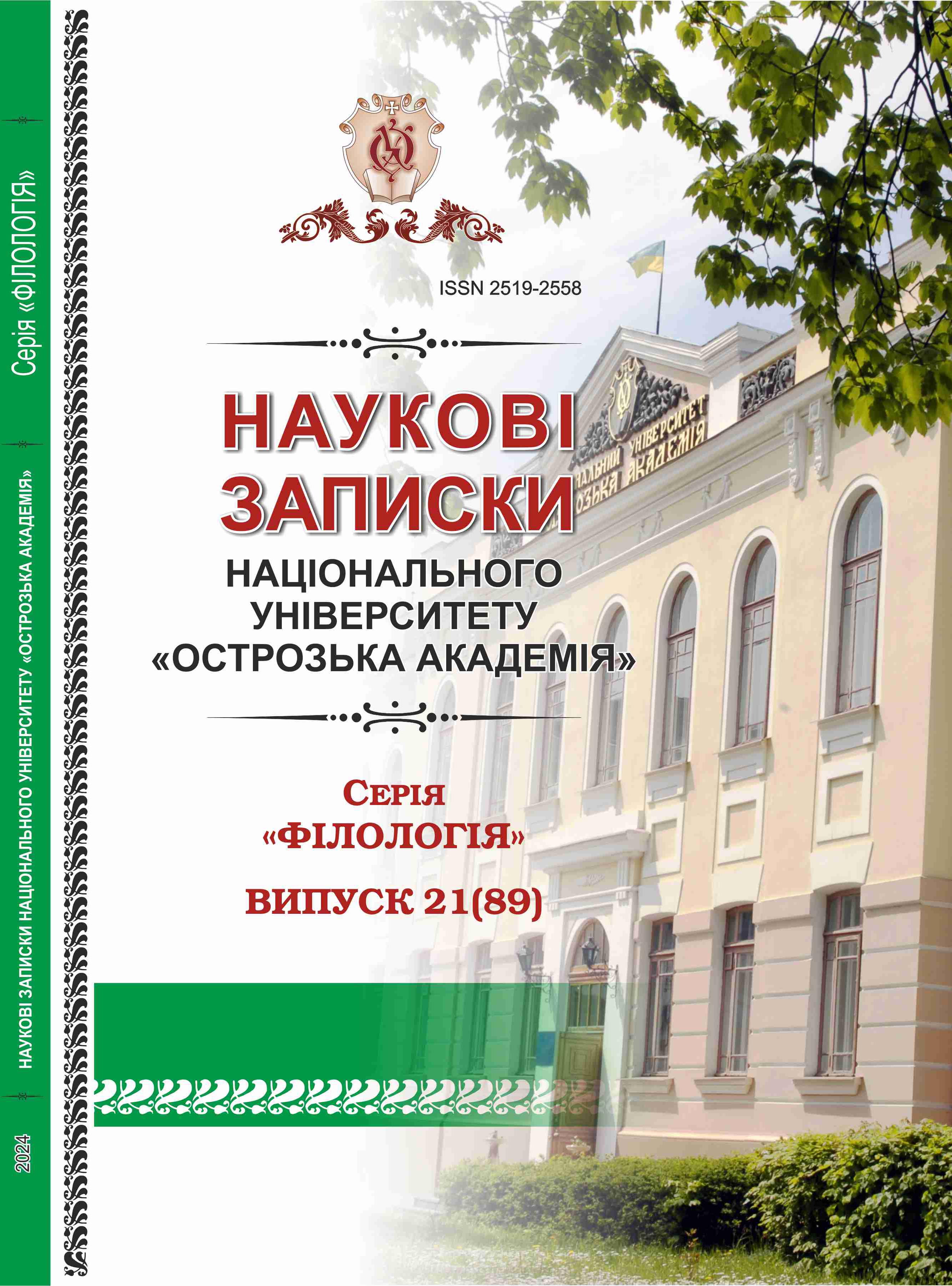OWN–DIFFERENT–OTHER IN THE WORLDVIEW OF MODERN UKRAINIAN ESSAYS (BASED ON THE MATERIAL OF ANTOLOGY “MARTIAL LAW”)
Keywords:
imagology, war zone, “own–different–other”, enemy, image, worldviewAbstract
The article aims to analyse the essay collection “Martial Law”, which reflects the imagological and identification processes in the self-consciousness of Ukrainians under the influence of the Russian-Ukrainian war. The theoretical basis of the study draws upon the works of authoritative scholars who examine the categories “own–different–other” (Yurii Barabash, Vasyl Budnyi; Manfred Beller, Joep Leerssen, Hugo Dyzerink).
The purpose of the article is to perform analysis of the functioning of the categories “own–different–other” in recent essays as indicators of the self-awareness of Ukrainian civil society and its dynamics based on the material of the essay collection “Martial Law” (2023). The analysis employs the imagological method of research, the method of structural-semiotic analysis, and the hermeneutic method of interpreting and understanding essay texts.
The article emphasizes that we are currently experiencing a rapid development of the essay genre, which is evidenced by the recent publication of several essay collections, including “War – 2022” (2022), “YBN BLD RSN” (2022), “Cultural expansion” (2023), “I do not know how to write about it” (2024). Against this background, the anthology Martial Law”, which features contributions from hundreds of authors, including well-known masters of the genre such as Tamara Hundorova, Oksana Zabuzhko, Andrii Liubka, Taras Prokhasko, Hanna Uliura, Artem Chapai, Artem Chekh, and others, has garnered particular resonance. It encompasses notes, reflections, and analyses inspired by the Russian-Ukrainian war.
It is evident that the perception of the worldview by Ukrainians has undergone a profound transformation. The tragic events endured have played a significant role in fostering a clear sense of Ukrainian self-identification across various social strata within civil society. The concept of “own” has become distinctly defined, enriched with nuanced meanings and emotional characteristics. Conversely, the concept of the “different” within the framework of the homeland has seen a shift, losing its potential for demarcation, liminality, and merged into the concept of “own”, thereby fostering a powerful sense of national unity. Meanwhile, perceptions of the “other” have undergone notable differentiation. Countries in Europe that have supported Ukraine have become mentally closer, leading them to be classified as part of the “different”. In contrast, the neighbouring terrorist state has been unequivocally identified as the enemy, embodying absolute evil. This dichotomy of identification has emerged as a central focal point in the worldview of the majority of Ukrainians.

